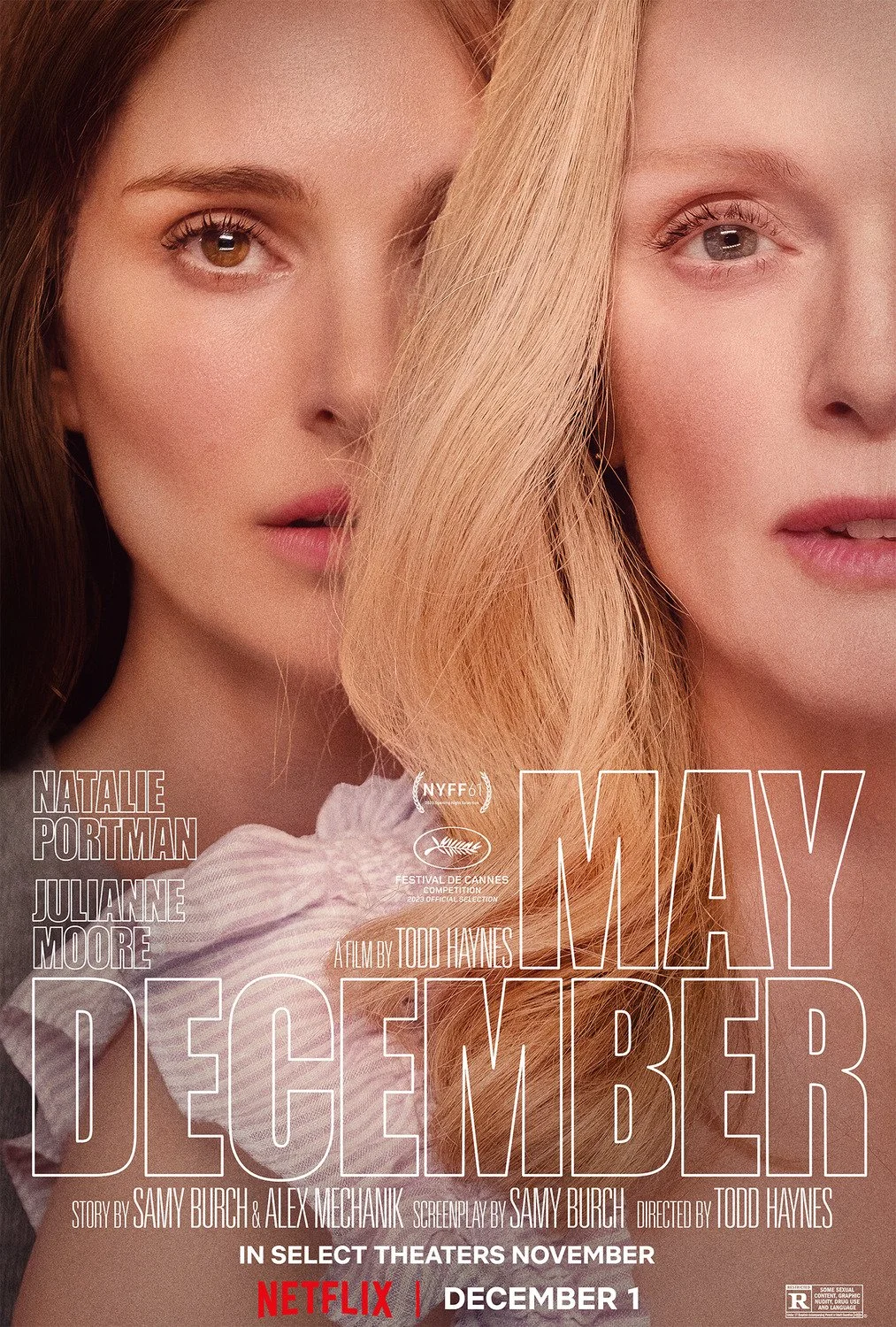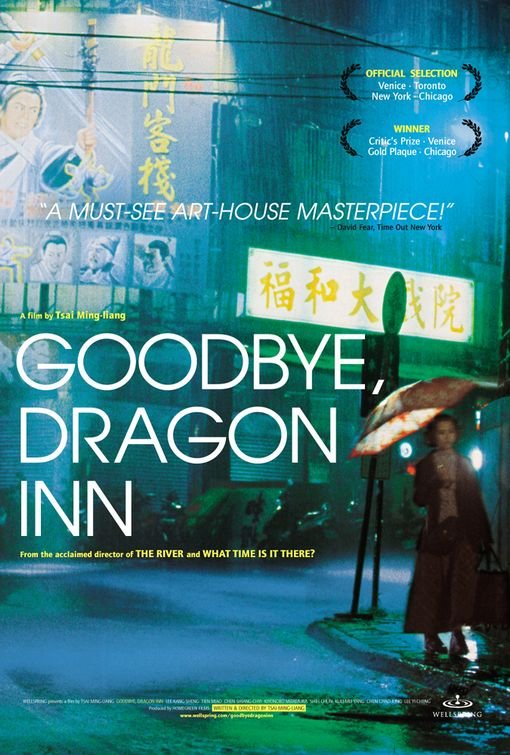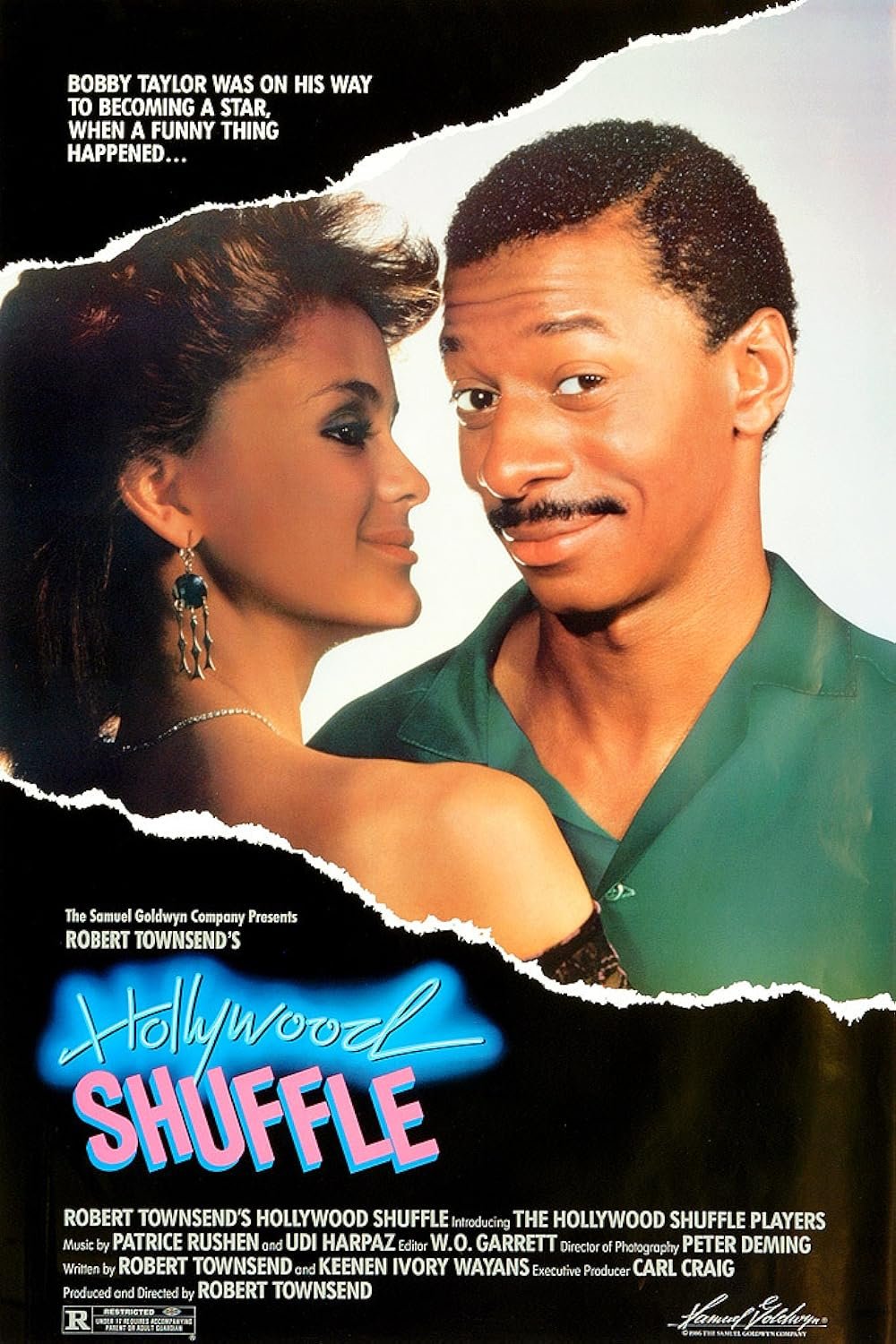(Some of) The Best Movies about Movies
In honor of tonight's showing of Crime Wave (not the Coen brothers one), let's take a look at some of my other favorite movies about movies.
Arrebato
There have been enough retellings of the Dracula myth to make even the biggest vampire lover feel a bit drained. So many of them suck, and so many others feel as decrepit and dusty as the Count himself. Arrebato offers a new, slightly oblique take on the vampire myth by filtering it through a camera and one man's obsessive desire to film and make film. In Arrebato, José (Eusebio Poncela), a part-time horror director and full-time heroin addict and serial cheater, receives a package from Pedro (Will More), the enigmatic and seductive cousin of one of his ex-girlfriends. The package contains a reel of film, an audio cassette, and the key to Pedro's apartment. There's something horrible and tempting contained within Pedro's film and in his desires. When you film something, it becomes an object that can only exist in the past. Film captures a moment, and that moment exists eternally in that frame. To be rendered immortal by that machine—is it a curse or a rapturous release?
American Movie
It's a cliche at this point to say that making even a bad film requires an overwhelming amount of work and support, but that doesn't make it any less true. Those micro-budget films starring friends and family of the director released in tiny corners of Amazon Prime and Tubi (and video store shelves, back when those still existed) represent months, even years of work, unflagging determination, and money. Even the cheapest of cheap films requires money to get made. So what happens when a person wants to make movies but he lives in a small town thousands of miles from Hollywood and doesn't have a high-paying email job? If you're Mark Borchadt, the subject of American Movie, you make it anyway. The documentary follows Borchadt as he cajoles friends, begs for money from his family, and writes, stars, records, films, edits, and directs his short film Coven (pronounced COH-ven). Mark has big dreams, and while it would be very easy for the film to slip into a mocking attitude, his passion and the filmmakers' obvious empathy allows American Movie to be an inspiring vision of one man's dedication to making a movie. Would that we all could be so unflagging in our dreams and that we could have such an all-time homie as Mike.
Labyrinth of Cinema
Nobuhiko Obayashi is best-known as the director of House for western audiences, but he's so much more than just his debut feature. He had many more decades of filmmaking before his tragic death from cancer in 2020, making other films that are classics in their own right. His final film, Labyrinth of Cinema, was made as he was dying of terminal cancer, offering audiences one last look into the mind of a director who never stopped approaching his art form with curiosity and daring.
The film follows three moviegoers in the present day thrown back through time at a local cinema into 1945, just before the atomic bombing of Hiroshima. Obayashi himself was born in 1938 in Onishima, a port town not far from Hiroshima. He lived through the atomic bombing, and this traumatic event reverberated through his entire career. (Consider the scene in House in which Gorgeous becomes enveloped in fire as her world and her reflection breaks into glass.) But that's not to say that Labyrinth is a depressing and difficult film to watch—Obayashi was always an experimental visual artist and a comedian more in on the joke than audiences who've only seen House might realize. His final film showcases the full range of his talent: his deep knowledge of Japanese cinema, his refusal to let "bad special effects" get in the way of an emotional resonance, the sympathetic care with which he views all of his characters, and so much more. It's a beautiful swan song for an artist that's still sadly underrated in the west and a brilliant film in its own right.
Bowfinger
Written by Steve Martin, directed by The Muppets' Frank Oz, and starring Martin and Eddie Murphy, 1999's Bowfinger was almost surely always going to make its money back at the very least. Yes, both Murphy and Martin had both had a minor lull in their careers in the '90s, but they were still utterly beloved comedians and box office draws in their own right teaming up for a movie for the first time. But what could've been an interesting, if middling, comedy buried in its stars' filmography became one of the funniest mainstream films about making movies with an all-star cast of soon-to-be very familiar faces.
Martin plays Bobby Bowfinger, a Roger Corman-esque low-budget director looking to finally get his big hit. Luckily for him, he's got a commitment to get his film made if he can get the A-list star Kit Ramsey (Murphy) to star. Unluckily for him, Ramsey has no interest in it. Luckily for Bowfinger again, he runs into Jiff, a dead ringer for the movie star, who's willing to act in the closeups while they follow Ramsey around to film him without his knowledge. While films about films can sometimes slip into inside baseball jokes about the film industry, Martin's script and Oz's direction keeps things broad and funny while Murphy once again proves that he's a star. The freeway scene still ranks as one of the funniest non-Jackass slapstick stunts of the last 30 years.
May December
Todd Haynes has long been a master of twisting real-world events into utterly idiosyncratic film narratives—Velvet Goldmine is so much more than just a David Bowie biopic, and Safe allegorizes the AIDS epidemic for a wealthy suburban housewife to make a larger statement on how America treats its sick and desperate. In May December, Haynes takes a look at the Mary Kay Letourneau scandal, in which a middle-school teacher began a sexual relationship with Vili Fualaau, one of her sixth-grade students, before marrying him while in prison. Although Letourneau isn't named explicitly, it's very clearly based on that story, even taking interview quotes from Fualaau and Letourneau and transposing them into a heartbreaking scene between Joe (Charles Melton) and Gracie (Julianne Moore). But May December is fundamentally about how we consume stories like these, sucking them dry of entertainment, of tawdry details, of scandal until the actual people have nothing left of their own. As actress Elizabeth (Natalie Portman) spends time with the family to, supposedly, better represent their story, it becomes abundantly clear that no one is interested in looking at the people involved rather than the scandal that encompassed them.
The Astrologer (1976)
What is The Astrologer? I saw the film months ago and, to be honest, I still can't really say it with any certainty. A quasi-biopic about star and director Craig Denney, written by his mother, the genre, plot, and tone seems to shift every 10 minutes. It feels as chaotic as listening to a stoned friend on the couch regale you with his last trip. There are real-world stories about mob money, disappearances, and even a spirited debate on whether the film was technically released at all. As Denney (within the movie) rises in fame, power, and (possibly?) astrological abilities, he makes his own movies starring his wife to further spread the message of astrology. Is this reflective of the actual film that you're watching? Unclear. How self-aware is Denney? Unclear. Was the nigh-constant voiceover a way to save money without needing to change the script's scale or just an attempt to fix all of the plot holes in the last minute? Unclear. What is clear is that movies can be anything, and this movie about a movie about a man with a real-life story about a man making a movie featuring wilder events than the actual movie is worth a watch.
Nope
It's maybe a bit reductive to call Nope a movie about movies. That was one of the most consistent takeaways by many critics upon the film's release, and the film has so many more angles to view it from and aspects to dig into. A film shouldn't need to be reduced into one fitting "ending explained" ultra-metaphor. That said, this is absolutely (partly) a film about making movies in pursuit of that one, perfect shot. "The Oprah Shot." It deservedly won "Best Film of 2022," so I likely don't need to remind you of the plot. Brother-sister duo, aliens, one of the best trailers in recent memory—you get the gist and you know the gist. Say yes to watching (and rewatching) Nope.
Goodbye, Dragon Inn
The giant glowing screen; those shadows in the chairs besides you; the gentle creaking seats and quiet murmur of popcorn crunching or whispering conversations. Movie theaters can be haunted places even at the best of times. In Tsai-Ming Liang's Goodbye, Dragon Inn, the final screening of Dragon Inn in a closing, decrepit moviehouse offers the audience a quiet look at the theater and its patrons. The ones cruising for encounters, the old people watching the film and remembering the first time they saw it, the projectionist hobbling back and forth as duties require. All of them ghosts watching ghosts, their own fictional lives immortalized just as the characters on screen were.
Hollywood Shuffle
Life isn't fair in Hollywood, especially for those people that don't fit the look that Hollywood wants. In Hollywood Shuffle, Robert Townsend presents a semi-autobiographical look at what being a Black working actor was like for him. For Bobby Taylor (Townsend), acting has been a string of rejections because he's "not black enough" or "not enough of an Eddie Murphy type," even as he's tempted into playing racial stereotypes to get his career off the ground. Interspersed with his auditions and conversations with family and friends are chaotic satirical vignettes like "Sneaking Into the Movies" (A Siskel and Ebert review riff) or "Death of a Breakdancer" (film noir). It's clearly a passion project for Townsend (he directed and co-wrote the film as well), and it never ignores the fundamental silliness of Hollywood cliches even as it acknowledges how much it hurts when you don't even have the chance to get those kinds of roles.
Local Legends
Yes, this is the second low-budget documentary following a low-budget filmmaker in a world far beyond the ritzy hills of Hollywood on this list, but Local Legends has a very different vibe and ambition than American Movie. Following a fictionalized version of real-life moviemaker and musician, Matt Farley, Local Legends tries to lightly explain the answers behind the questions that the real life Farley constantly gets asked. Farley, for most people, is likely best known as the musician on Spotify that's written over 15,000 songs, many of them using only a few words and some basic chords. Somewhat less known is that, along with his friend Charles Roxburgh, he's been making low-budget feature films with his friends and family for over twenty years, each for "about the price of a used car." This combo of hyper-creativity, rapid output, and a minimum level of fame usually has interviewers asking, "Why? Why do this at all?" The reason is because creativity is its own reward and that, as Farley says in the doc, "I'd rather have 12 movies made than 12 used cars."
One Cut of the Dead
This is the best type of film to go in blind for, so I won't even summarize the plot here. Go in, make sure you watch past the 30 minute mark, and enjoy.
——————
Was your favorite movie about movies not on here? Feel like I forgot a fantastic film? Drop your own list in the comments below.












Ziah is the founder and former editor-in-chief of the Hyperreal Film Journal. He can usually be found at Austin Film Society or biking around town.